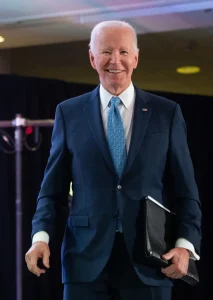The right could win big in Europe – thanks to young people

As Europeans head to the polls in four days of voting across 27 countries to elect a new European Parliament, millions of young people will be casting their ballot for the first time.
In some countries, the voting age has been lowered to 16 – so minors in Belgium, Germany, Austria, Greece and Malta will be able to cast their vote in these elections.
“It’s a very big opportunity for us, because it gives us a voice we never had before,” says Mare Verlinde, a 17-year-old student from Belgium.
“I think Europe needs to step up and be stronger – we can’t always rely on Nato,” her friend Auguste Duchene says, earnestly.
For this group of friends – and for many of their peers – these European elections are hugely significant when it comes to security. They grew up being told Europe was safe – but in the last two years, that conviction has disappeared.
17-year-old Lore Sleeckx is worried about war in Europe.
“My history teachers are saying they wouldn’t be surprised if a world war happened in the future,” she says – and all her friends nod in agreement. “That really scares me.”
“They were mercilessly criticised when they built fences; but the reality is that what the EU is doing is not working,” says Giorgio. “We have no idea who is coming in: people are falling through the cracks, and they could have a criminal record – meaning that Europe is less secure.”
Far-right politicians are also doing a better job at grabbing the youth’s attention online: their social media strategy is unmatched.
The perfect example is French politician Jordan Bardella – the charismatic 28-year-old leader of the National Rally who heads its list for the European elections. With 1.2m followers on TikTok, he is making his party appealing to France’s youth – one selfie video at a time. According to one survey, 36% of French people under 24 back him.
“TikTok and Instagram lend themselves to the type of messages that the radical right wants to spread,” says Dave Sinardet. “Simplistic, unnuanced videos on issues like migration, security and gender.”
In Italy, Matteo Salvini of the far-right League is campaigning on Instagram with the slogan “Less Europe, more Italy”. He posts AI-generated images suggesting that “more Europe” means being forced to eat insects, men with Jesus-like beards giving birth, and the unforgivable sin of eating pineapple on pizza.
“These messages ignite an emotional response, and that’s why they are boosted by the algorithm, especially on TikTok,” says Prof Sinardet. “The far right invested on social media very early on – and now, they are reaping the rewards.”
More than six in ten young EU citizens say they are going to vote in the upcoming European elections. Instead of a “green wave”, this time around they could be pivotal in delivering the most significant push to right since the EU was founded.
That could fundamentally reshape Europe’s agenda on issues ranging from climate, to migration, to support for Ukraine.
Bence Szabó from Hungary has no doubt this will translate into an EU legislature more in tune with the young generation.
At least, that’s their promise on TikTok.


